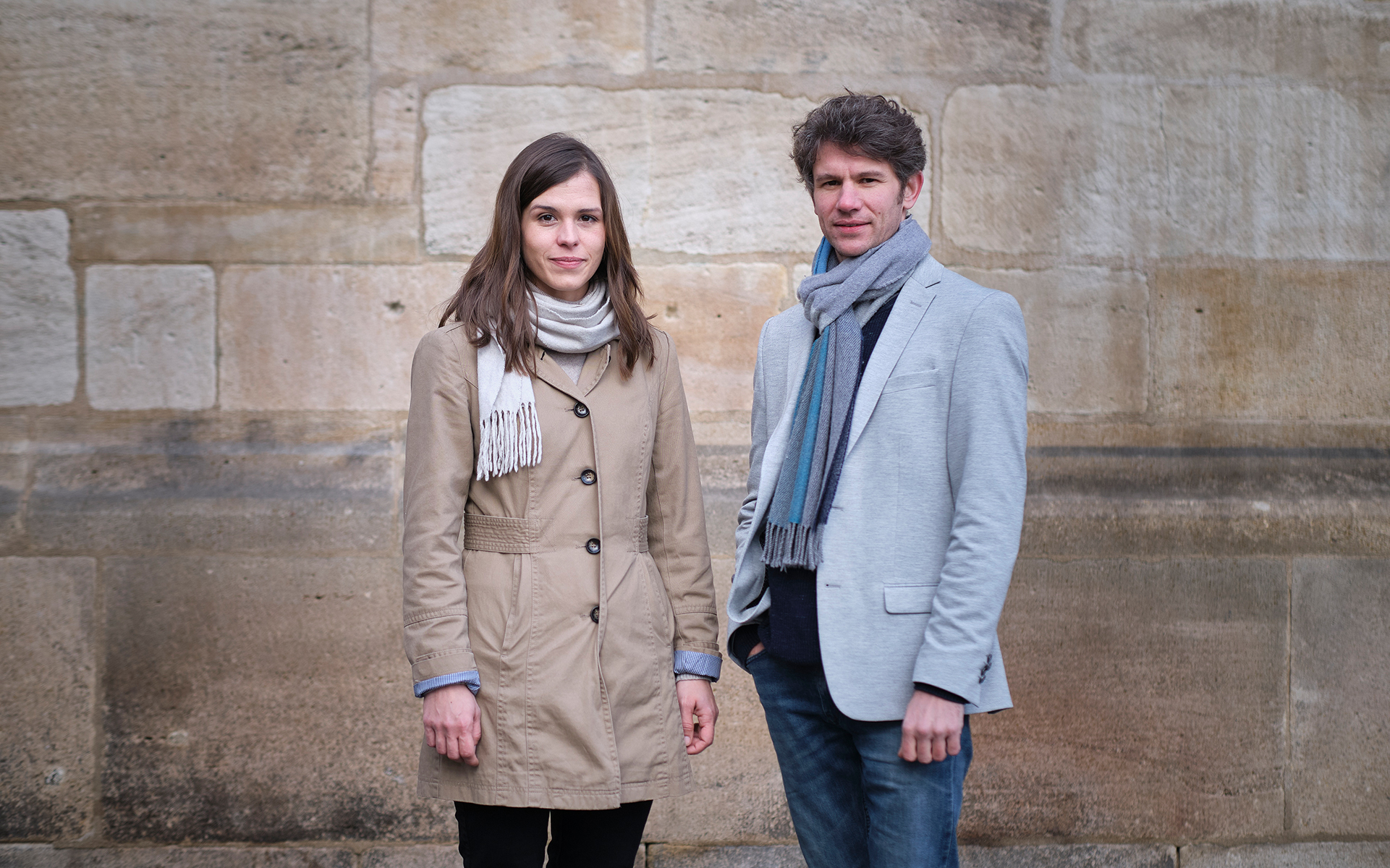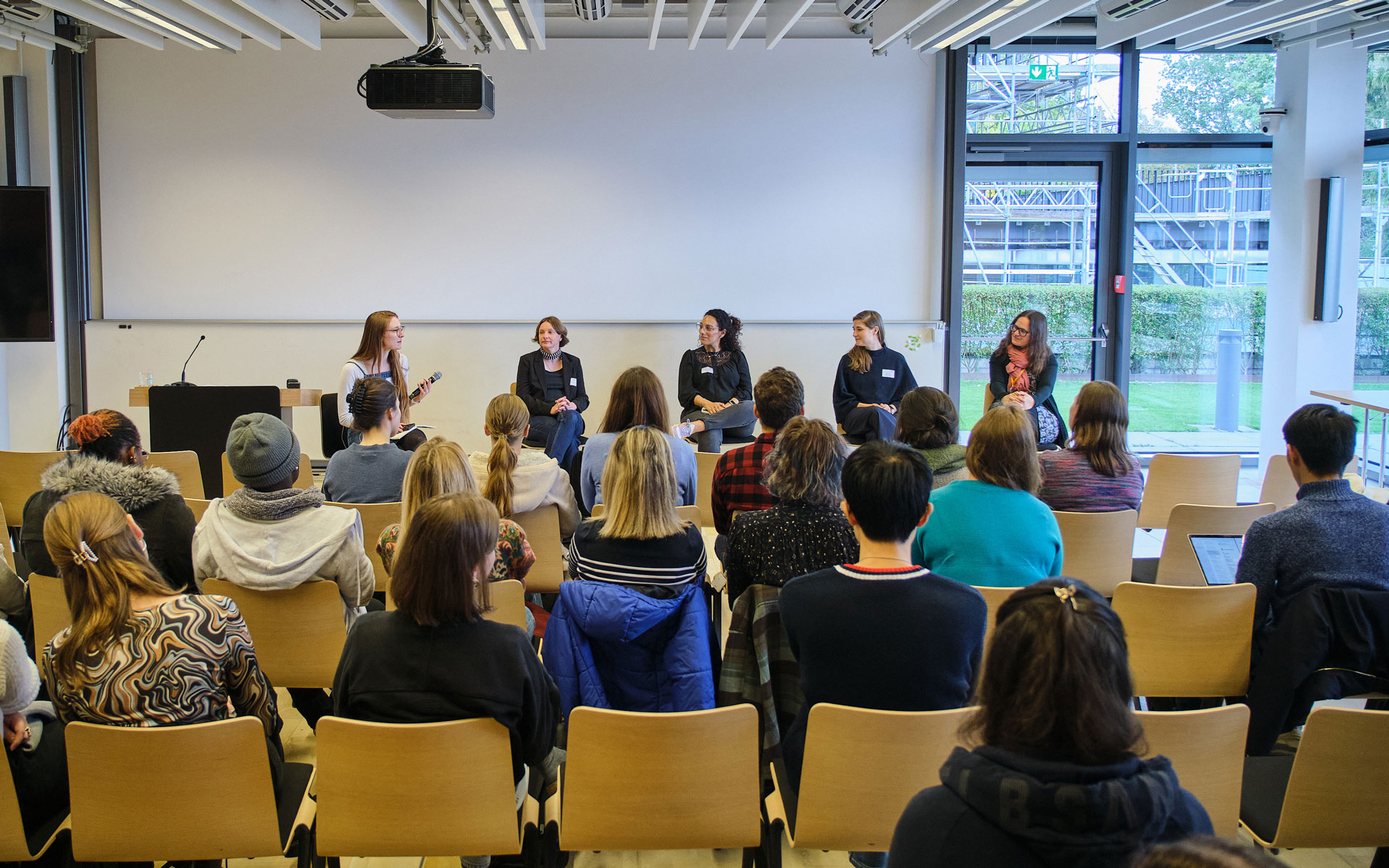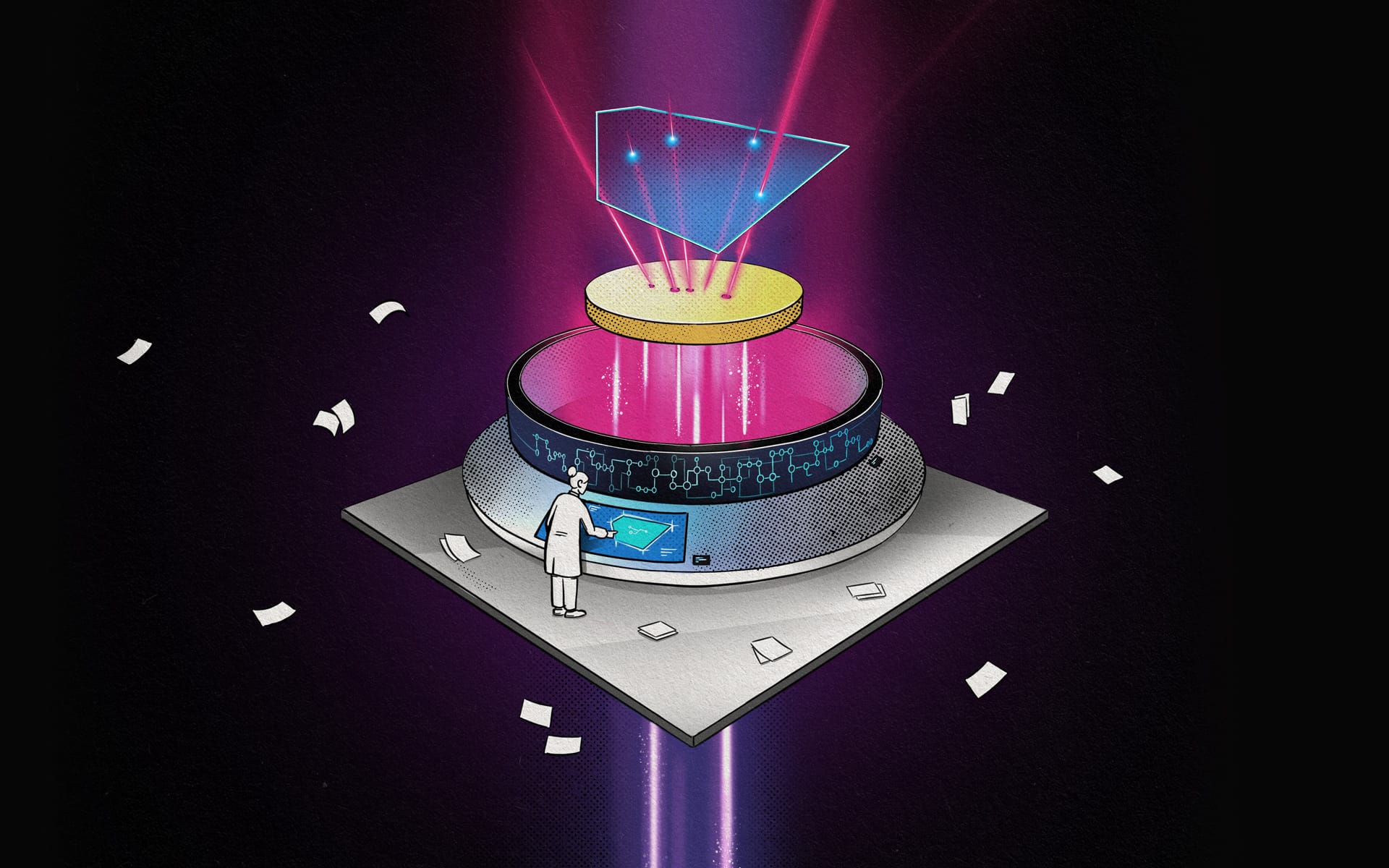Some 40 citizens from Baden-Württemberg, four sessions in different locations, and one central question: How can the scientific community and society cooperate to shape the future of artificial intelligence research? This is the “AI and Freedom” citizens’ council , initiated by the University of Tübingen in 2024. Rhet AI (Center for Rhetorical Science Communication Research on Artificial Intelligence) is running the project, and funding is provided by the Excellence Strategy of the University of Tübingen and the Volkswagen Foundation. The members of the citizens’ council were randomly selected to ensure that the composition of the council roughly reflects the demographics of Baden-Württemberg’s population. Gender, age, education and ethnic background were all considered. The ultimate objective of the citizens’ council is to develop a policy paper which the council will then submit to Baden-Württemberg’s Minister of Science, Petra Olschowski.
But will the council actually have an impact? Can citizens successfully gain an in-depth understanding of an issue as complex as artificial intelligence? Can the citizens’ council truly influence scientific policy and research? To answer these questions, we talked to Anika Kaiser and Patrick Klügel. Patrick Klügel is the head of the citizens’ council project. Anika Kaiser is a member of the project team, and her research on the citizens’ council will also be incorporated into her doctoral thesis on epistemic injustice in deliberative communication formats. In other words, she is examining the obstacles that make it difficult for citizens to contribute their knowledge and experiences to public discourse – and how these obstacles can be overcome.
Machine Learning for Science: You initiated the “AI and Freedom” citizens’ council in Baden-Württemberg, which met from September to November 2024. Why is this council necessary and why now, in particular?
Patrick Klügel: The technologies behind artificial intelligence are currently evolving so dynamically that it is extremely important for society to remain informed about these developments. Currently, there is a massive disparity between the advances in AI research and AI development and the information available to the general public.
“The narrative and opinion making should not be influenced by those parties with primarily financial interests.” – Patrick Klügel
The public discourse about AI is currently dominated by specific parties, particularly the major corporations spearheading AI development. This means that we have a fundamental need for people who can build bridges, who ensure the basic flow of information and who can also provide the background knowledge so that the public are in a position to form an opinion about the risks, opportunities, and potential regulation of these technologies. Because applications utilising artificial intelligence can both restrict our freedom and also increase it. The narrative and opinion making should not be excessively influenced by those parties with primarily financial interests. This is exactly where projects such as the citizens’ council have an opportunity to provide alternative channels.
Anika Kaiser: It is also important to consider the extent to which the public information and opinion forming processes have an impact on political decisions. Currently, numerous political decisions regarding AI are being made on a European level, by the individual national parliaments and also by the state parliaments. Given that politicians represent the people, I believe that it is important that the citizens’ arguments and needs are available at exactly the time when they are needed. Debate on these issues is long overdue, it must be carried out in the public domain and, more particularly, it must involve broader society.

Anika Kaiser and Patrick Klügel want to strengthen the citizens’ voice in the public debate on AI. © PATRICK GERSTORFER / UNIVERSITY OF TÜBINGEN
Do citizens dare to participate in these debates?
Patrick Klügel: We have, in fact, noticed a tendency among the citizens involved in our project where they initially did not feel competent at all and said, “we cannot form an opinion about this because we are not experts.” Yet that is exactly why a project like this is so important because it offers citizens a chance for empowerment and to say: Yes, there are definitely perspectives that laypeople can bring to the table when it comes to shaping the political framework surrounding AI research.
Which techniques can successfully empower people and how did you do that in the council?
Anika Kaiser: We went on an imaginary journey in the third session, for example. In the first two sessions, the participants were provided with, to put it bluntly, alien information, that is, in-depth AI knowledge. And it was noticeable that they were mostly preoccupied with trying to understand something alien to them and still trying to find a language for it.
“People are already AI experts regarding specific issues because of their own, unique experiences in their everyday lives.” – Anika Kaiser
The idea of the imaginary journey was to go back ten steps and to say: “OK, think of your day-to-day life. What could be automated? Which problem do you notice with a specific technology where you would say “This annoys me all the time, this always makes mistakes.” We wanted to make people aware that they are already AI experts regarding specific issues because of their own, unique experiences in their everyday lives – without them having to understand the ins and outs of AI research.
Patrick Klügel: What happened after we introduced this format was incredibly noticeable: people spoke up who had never talked before during the council sessions. We immediately observed an effect. Suddenly new issues were brought up and people who had never contributed anything previously felt enabled to speak. Interestingly, these were primarily women. This also led to care issues being discussed.
What topics came up exactly?
Anika Kaiser: The organisation of day-to-day family life, like cooking plans. The fact that people use apps for tasks like these, for example.
Patrick Klügel: Simplifying dealing with authorities and administrative activities through automation was also mentioned.
The council is there so that people can discuss and form opinions. In addition, it has another major objective: to prepare a policy paper. This paper will contain recommendations for Baden-Württemberg’s Ministry of Science on how society can accompany and support AI research in Baden-Württemberg. You are intentionally waiting until mid-March, when the paper is submitted, to share the content with the public. But could you perhaps describe the function of the paper?
Patrick Klügel: The citizens’ council was initiated by the University of Tübingen. This means that it is not a political initiative. However, we promised that the citizens’ council would see itself as a committee which makes a difference. And that is why it will make recommendations to the political world. The policy paper is the citizens’ voice and explains how the recommendations arose. This forms the foundation for any subsequent efforts of influencing policy.
In the fourth and final session in November in Stuttgart, Baden-Württemberg’s Minister of Science, Petra Olschowski, also visited the citizens’ council.
Patrick Klügel: This was an important signal to the participants, demonstrating that the ministry truly has an open ear and they can experience this live. Citizens asked the Minister questions, for example, concerning the importance of public funding of AI research in Baden-Württemberg or how much money is being spent on this. Ms. Olschowski was very open during the discussion with the citizens and promised once again that she would receive the recommendations of the citizens’ council.
Ultimately, the policy paper will be presented to research institutions and also to AI researchers themselves in Baden-Württemberg. How do you see this, do researchers have a moral obligation to address the public’s concerns and requests?
“Researchers should see the potential of participatory research.” – Patrick Klügel
Patrick Klügel: No, there is no obligation. Publicly funded researchers have scientific freedom and the council members did not question this. However, researchers should see the potential of participatory research.
Anika Kaiser: The exchange between the scientific community and society is highly important. But less for the purpose of giving instructions, rather to make societal needs, values, arguments and perspectives visible in a way that science can address them.
How should the citizens’ council project develop so that you can look back on it in a few years and say: “That was a successful project”?
Patrick Klügel: For me, the project will be successful if, in two or three years, many AI research institutions and organisations supporting AI research have established specific public engagement measures and strategies which organise the involvement of citizens in AI research in an effective way. The policy paper from the citizens’ council should serve as an inspiration.
“Ideally, what started on a small scale in the citizens’ council would have an impact on the wider public.” – Anika Kaiser
Anika Kaiser: I will be celebrating if new arguments enter into the public discourse thanks to the citizens’ council and stimulate the AI discourse as a whole, making it more accessible for people from different backgrounds. Ideally, what started on a small scale in the citizens’ council with around 40 participants would have an impact on the wider public and continued there.
The interview was conducted by Theresa Authaler.
Translation into English: Conrad Heckmann
The International Center for Ethics in the Sciences and Humanities (IZEW) at the University of Tübingen is also involved in the “AI and Freedom” citizens’ council. The Cluster of Excellence “Machine Learning for Science”, Cyber Valley GmbH as well as other organisations and research institutes in Baden-Württemberg are ideational partners and supporters of the citizens’ council.

A network for women to support each other


Comments